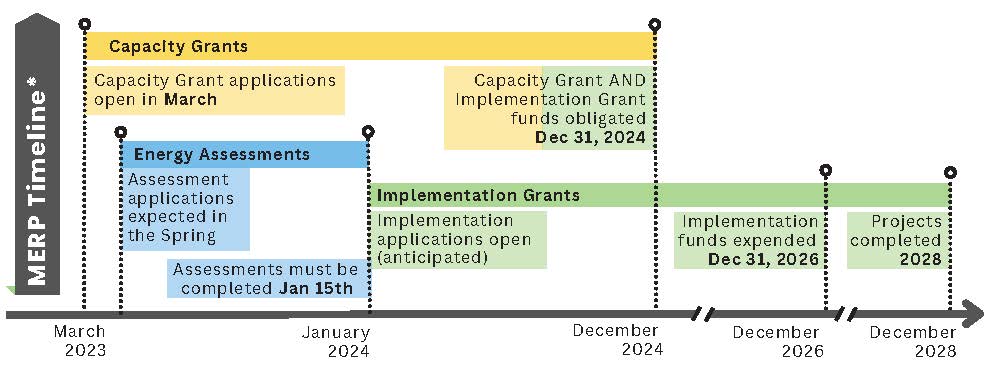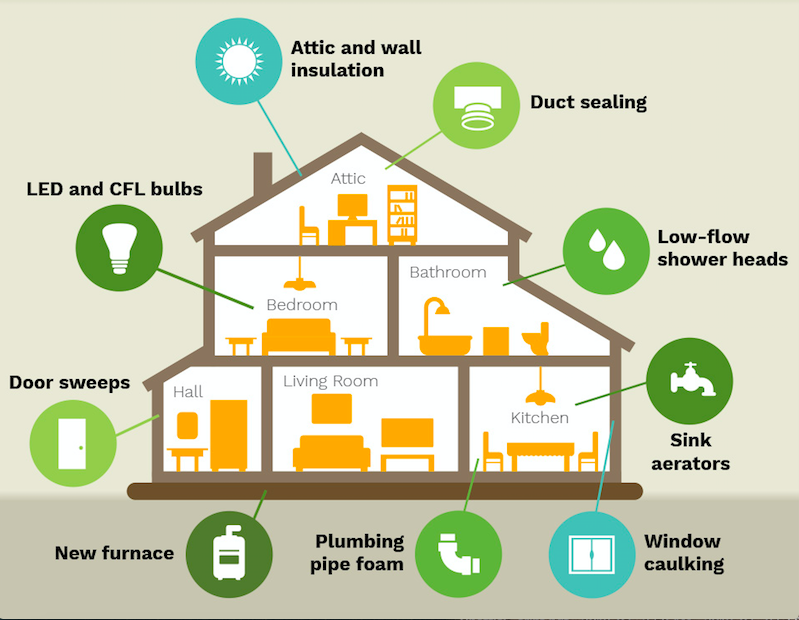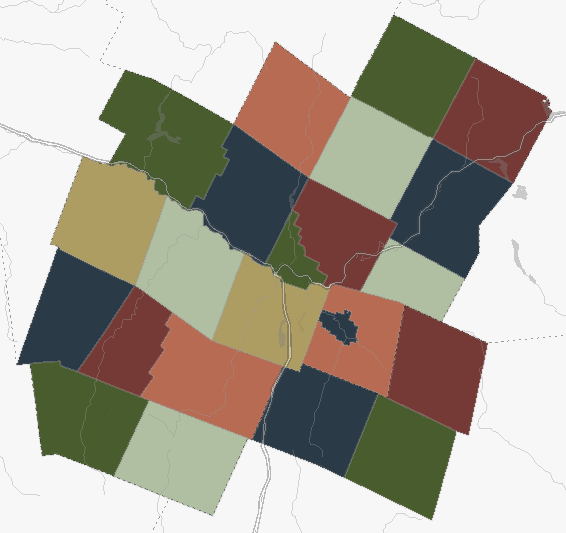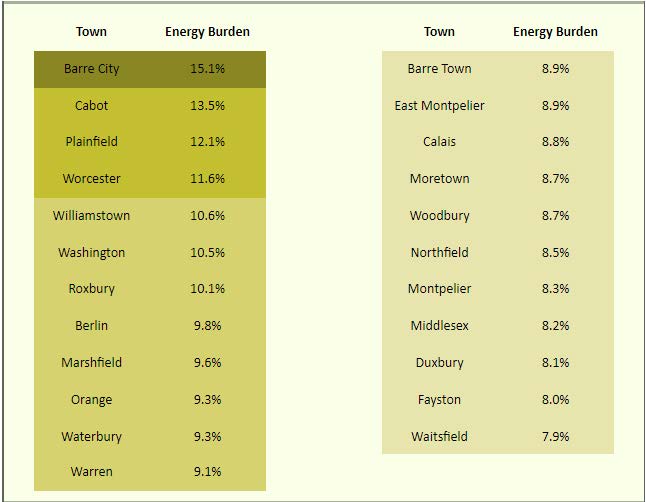Municipal Energy Resilience Grant Program
Note: this website will be updated frequently, please check back regularly!
The Municipal Energy Resilience Program (MERP) will provide staff support, application and technical assistance, and funding to help communities become more energy resilient, reduce energy use and operating costs, and curb greenhouse gas emissions by promoting renewable energy, battery storage, electric vehicle charging, weatherization, thermal improvements, fuel switching, and enhanced building comfort in municipal buildings and facilities.
Passed on June 2nd, 2022, Act 172 provides $45 million to promote dependable and sustainable connections to critical municipal services for all Vermonters. Existing buildings owned by cities, towns, fire districts, incorporated villages, and all other governmental incorporated units except for school districts, are eligible for MERP.
This program is being developed by Building and General Services (Agency of Administration) and supported by Vermont’s Regional Planning Commissions, as well as Vermont League of Cities and Towns, Efficiency Vermont, and VECAN.
There are 3 Program Components:
Phase 1: Free Energy Assessment (by State Contractors) (now open)
Towns can apply for building assessments of any municipally owned building (except schools). Two levels are available:
Level 1*: Walk-through assessment. Takes ~1.5 hours and qualifies the building for MERP Implementation Funds.
Level 2: Investment grade audit. Takes ~4 hours and qualifies the building for MERP implementation funds and the State’s energy revolving loan program. This will result in information critical for project development and pursuing additional Federal and State funding sources.
Phase 2: Implementation Grant
Each municipality can apply for a maximum of $500,000 for building renovation projects regarding weatherization, thermal efficiency, and supplementing or replacing fossil fuel heating systems with more efficient renewable or electric alternatives. Any municipal building that receives an energy assessment through the MERP program is eligible for this funding. These funds can be split across several eligible buildings (as one project and application)
Energy Assessment required to be eligible for these implementation funds.
Cherry on Top: Community Capacity Grants (optional- Now Open)
These grants provide up to $4,000 to support energy resilience community capacity building.
Potential Uses:
- (Co)-hire staffing to support grant writing, project development, and/or municipal energy tracking
- Host educational events/energy fairs
- Start an energy committee
- See more here!
*An Efficiency Vermont Walkthrough does not count as a Level 1, because MERP Level 1 walkthroughs will also assess renewable energy generation, storage, and EV charging infrastructure potential. Efficiency VT walkthroughs DO help you understand your municipal building energy baseline and needs which is key for helping you prioritize and develop projects!
Timeline:
Nota Bene: The Energy Assessment Application will now be open until October 31st, 2023

General Program timeline:
- Applications for $4,000 community grants opened March 2023
- Applications open for Energy Assessments July 5th, 2023
- Applications open for Projects TBD
- October 31st, 2023: Energy Resilience Assessments Application Closes
- December 31, 2024: All grant awards must be obligated
- December 31, 2026: All grant awards must be expended
- June 30, 2028: Final reporting submitted.
Checklist (What You Can Do!)
Coordinate and check-in with municipal staff and leadership frequently and often:
- There are several different components of this program- CVRPC will continue to reach out to municipalities to help you prepare for the various program phases as they roll out. CVRPC will also provide you with technical assistance for applications, assessments, and implementation.
- Sam will held Application Walk-Throughs, the first was July 13th, 12pm (register here)
- Sign-up to walk through applications with Sam, get technical assistance, ask questions, and more here
- Build communication between Selectboard, Town Energy Committee/Coordinator, Town Clerk/Manager &other staff, Planning Commission, etc- who will be the primary contact person?
- what projects are high priority?
- start collecting information (see below)
- Meet with your RPC energy planner and keep an eye out for upcoming office hours, workshops, and information sessions.
Create a Municipal Buildings and Facilities Inventory :
- List of municipal buildings, condition, past assessments, any work done on the building, needs, etcs.
- Start tracking your recent and current municipal energy usage- working with a student team from Middlebury College we created an easy-to-use template to do so- interested in trying it out? Let us know!
- Review previous municipal building and facility audits, recommendations and any subsequent implementation (e.g. many towns used ARRA funds in 2011-2 to do audits), have you done an Efficiency Vermont walk through recently?
- Projects you want to pursue (and priorities) e.g. weatherization, fuel switching, renewable energy generation, vehicle charging infrastructure, etc.
Why track Municipal Energy Use?
- Understand annual costs and usage
- Assess potential cost and emissions savings associated with proposed project alternatives
- Identify needs and opportunities; develop grant applications to draw down unprecedented funds to your town!
- Check out webinars:
- upcoming VLCT webinar 4/18 10-11am MERP: Grants for Efficiency Municipal Buildings (if you get an error please Login via the Municipal Access Portal and/or email Sam at lash@cvregion.com for the link directly)
- BGS webinar hosted by VECAN (Winter 2022)
- this presentation from the June 14th CVRPC Board of Commissioners Meeting on the text of the bill with FAQ, suggested next steps, etc (program still in design, some aspects subject to change e.g. there is now an option between Level 1 and Level 2 assessments)
- Here is a link to the web page where you can join the BGS mailing list for updates. and BGS’ FAQ!
More Details
Municipal Energy Burdens (2019 Efficiency Vermont Report)
Applications will be prioritized based on several criteria including prioritizing projects from communities with the highest energy burdens (see below for more criteria):
What is an Energy Burden?
=
Household Energy Spending (Electric+Thermal+Transportation Sector) / Household Income
*The report found that Vermont’s average household was at 10% with 12 communities above 15% (up to 20%). Heating (and now increasingly also cooling) needs, aged housing/building infrastructure, and dispersed rural settlement patterns (associated with high transportation costs) are just some of the intersecting contributing factors.
The 2019 Efficiency Vermont White Paper used 2017 data and is undergoing an update; while there are certainly considerations that could improve this methodology and alternative proxies for energy burden, this is currently the most comprehensive and handy report to use as a rough guide. Criteria in addition to energy burden will be considered as well (see below).
Check out some great resources for state and local governments and low-income stakeholders here.
Other criteria consider for prioritization:
- Geography
- Administrative capacity
- Community Size
- Project Need
Requirements for implementation:
- high speed internet (by project completion)
- ADA Accessible (American Disabilities Act) by the time the project is completed
- Energy Assessment (free as part of program)
- Hazardous materials remediation will not be covered by the grant (although may be available via other programs)
Key Things to Keep in Mind:
- There is no community match required, however this is a great opportunity to use these implementation funds in conjunction with other sources of funding- VLCT is preparing guidance on how communities can best to STACK funding to get major municipal projects funded.
- Book a 15 minute appointment with VLCT for 1:1 help with funding!
- Vermont Federal Funding Guidebook (Dec. 2022)
- CCRPC Funding Database
- The application is still in development- RPCs will be conducting outreach to all towns to support applications; we will be providing updates, workshops, and holding weekly office hours so stay tuned!
- There are several ways you can begin preparing- see above.
- Sign up for Energy Listserv to get the latest and/or reach out to lash@cvregion.com
Energy Assessment Application
Reminder: Phase 1 are the energy assessments for municipal buildings, these make the town eligible for and support the project development of phase 2- the $500k project implementation funds. Energy assessments are free and will be conducted by 4 State contractors (after you apply and are approved, you will be contacted re scheduling!).
Assessment Application: MERP- Energy Assessment Application
- Application Guidance: MERP- Guidance Document
- Application Guide: MERP Assessment Grant Application Guide
FAQ: Contractors are DuBois&King, Bureau Veritas, Nova Group, and Cx Associates
Application Resources:
Each town has a shared folder, please email lash@cvregion.com if you would like to use it to support your application! Helpful documents and templates have also been put in a folder here, including:
- “Start Here” doc.
- Town priorities/vision/goals guidance (question 19)
- Municipal Utility Template
- Lighting Schedule Guide
- Old ARRA Audits
Tips from Sam:
- There are 2 different Levels of assessments: we encourage all municipalities to pursue a Level 2 for all buildings, if there are too many application material gaps or they are unable to perform a blower door test they can always simply perform a Level 1:
- the more info you can provide the auditors the better,
- the Level 2 also makes towns eligible for an additional Revolving Loan Fund BGS program,
- Level 2 report and data sets towns up to pursue additional federal programs and track the success of implementation!
- Question 19 is important! It is the main spot you have to describe your vision and your priorities in narrative form- this is where answers to the following questions should go:
- Who uses the space/what services does it provide (regional shelter, local community groups, etc.)
- big visions for next decade (resilience hub, cooling/warming center, small business incubator, renewable energy generation/storage, food shelf/pantry, continuing education, teen space, etc.)
- Town goals around building efficiency and energy (transition to electric heat and pair with on-site generation and storage; a back-up battery for critical operations, etc.)
- Sam is happy to review or work on these together!
- Once you complete the google form for the assessment application you will receive a link to a SharePoint folder to upload your materials (those listed above), work with Sam and/or use the shared google folders as a place to start before submitting your application!
- ASSESSMENT APPLICATIONS WILL BE OPEN UNTIL OCTOBER 31st, 2023
- You can still apply to the Mini Grants ($4k): https://bgs.vermont.gov/municipal-energy-resilience-program/mini-grants
Required:
❑ Prioritize up to 5 buildings for assessments (per application, you can submit additional forms for additional buildings),
❑ Provide square footage (approximate is fine),
❑ Electricity use per building- last 5 years (see Municipal Utility Template)
❑ Fuel use (oil, gas, propane, wood, etc.)- last 5 years (See Municipal Utility Template)*
*while chatting with folks around fuel usage, it may not be a bad idea to take the time to pull together your vehicle inventory and replacement schedule, approximate fuel used annually, etc. so you can look at your energy usage across all three sectors (electric, thermal, transportation), this is NOT required for MERP but would be useful to know for your general goals as a town.
Ideally, and certainly key for large buildings, provide what you can from the following list:
❑ Mechanical and electrical plans, drawings, maintenance manuals
❑ Architectural Drawings
❑ Lighting Schedules (ideally, see template in shared folder!)
❑ Other documents/information that will be useful:
❑ recent energy audits/walk through reports and description of any recommendations that were implemented (Sam has added ARRA audits to shared folders)
❑ Planned projects/projects in process (the more details/links to info the better)
❑ Known Issues:
❑ hazardous materials (including if remediated)
❑ Location issues
❑ ADA compliance/gaps
- Short narrative:
❑ Priorities: Who uses the space/what services does it provide, big visions for next decade, town energy and building efficiency goals (see below)
Additional Resources Coming Soon!
For assistance with these and finding other opportunities please reach out to Sam Lash, CVRPC Climate&Energy Planner.







